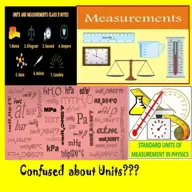Understanding about Measuring units used in LPG industry

Ashok Khopkar
View profile
948 Views
1 Enrollments
Share
-
-
-
This course format is where trainer will explain you the subject via online live session. Date and time are not decided yet but it will be planned within next 2 weeks after you enroll & pay for this course. Get in touch with our team if any clarification is required.
₹ 1000
online

₹ 1000
Why do you enroll
Key topics covered
Course details
Course tags
Why do you enroll
What will you learn..
1. Important units used in LPG application from design to end use.
2. Which units are more suitable under which conditions
3. Step by step Converting units from one to another system units
4. Preparing your own conversion chart
5. Some basic conversion factors to remember
What benefits you will get ...
It will build your confidence in doing calculations, eliminate errors in calculation, ensure timely project execution, avoid loss to the company, better personal performance, brighten your prospects.
Show more
Key topics covered
Key topics covered ...
1. Basic and derived units
2. Parameters that use these units
3. Various systems of units and main conversion factors
4. What is meant by consistency of units
5. Using readily available conversion charts and calculators
Course Details
Confused about Units?? Don't worry, this course is for you.
Objective ...
To clearly understand units used in LPG industry for expressing quantities of various parameters of LPG, and also using in formulae. Various systems used and conversion from one to another system
About the course ...
It's a "Must have sufficient knowledge and Clarity" type of topic that will be covered in this course, for all who are working in industry related to LPG at any stage.
In engineering, every parameter or characteristic / property needs to be measured and expressed. For example Length in meter, centimeter, feet, inches. Weight in kg, gram, ton, Lbs. Time in hour, minute , second and so on. More complex are flow rate, pressure, heat transfer, viscosity, heat capacity, and so on. There are many parameters like this. These need "units" for measurement . The units will be always accompanied by some number, telling how many such units.
LPG properties can be grouped as Physical, chemical, thermodynamic, electrical, molecular. Properties/parameters are expressed in different units by different countries, for different applications. Time based parameters can be with reference to volume or weight. For example, flow rate is expressed in litre/sec, kg/sec., CFM, CFH, Lbs/min, etc. Combination of weight unit and time unit can cause further multiplicity of units, like m3/min, m3/hr, MMSCFD (Million standard cubic feet per day) for large quantities of natural gas, BPD (barrel per day) for crude oil flow measurement;
Another example is heat capacity (calorific value) of LPG (fuels in general) is expressed in k.cal/kg, k.ca/lit, btu/lb, Mega-joules/kg(MJ/kg), Kilowatt-hour/kg (KwH/kg) and many more. All this can be per unit volume also. A simple calculation like flow velocity through pipe can give wrong results if values are placed with non-consistent units. e.g. Just try to calculate 48m3/hr flow thr 3" sch. 40 pipe. What is the velocity in m/sec? You will realise the pitfalls.
This is all confusing and can create serious problems while using the data. Multiplicity of measuring unit like Metric(MKS), SI system, Foot-pound-second system(FPS) increase the complications. Data charts use variety of all units. You need to convert data from one system to another which you may be using at that moment'
This course is an effort towards removing that confusion by explaining the basic units, (also known as Fundamental or independent), derived units and conversion of derived unit, from one system to other. Kg/min to M3/min, using density. Many formulae contain some constants which are unit specific. Consistency in units is very important to get correct end result.
For LPG, properties which are commonly required for applications, are ----
Volume, density, Specific gravity, Specific heat, boiling point, Latent heat, Critical pressure and temp, Phase change temp, Viscosity.
Parameters which are regularly used are ---- Pressure, Temperature, Pipe Flow velocity, Flow rate, Pressure drop, Heat transfer rate, Thermal expansion, and may more.
It is essential to get sufficiently familiar with these parameters and their units.
Who will benefit by this course ....
Everyone who has to do calculations related to LPG equipment design, selection; plant capacity calculations, costing; LPG consumption calculations and many others. Business owners, especially from commercial background. Marketing engineers, project engineers.
Quality assurance personnel.
Lack of clarity about this can result into mistakes in design, serious hazardous situations, delay in project execution, loss in business.

Show more
Course tags
Industry domains :
Engineering Disciplines :
FAQs on Understanding about Measuring units used in LPG industry
Having specific question ? Ask now
Trainer’s Feedback
1 course rating
1 ratings
SD
Shubham Deep
11 days ago
VIDEO LINK IS NOT ABLE TO OPEN
Certificate of Mastery

Receive well recognised certificate that you can showcase on
Featured courses
Hazard Identification and Risk Assessmen...

How to prevent corrosion in the oil and ...

Application and use of "Green Hydrogen"

Career in EPC projects for Freshers

Career in EPC Cost Estimation

Learn MATLAB Programming

More Technical Courses From Ashok Khopkar
LPG Basics - Specialised course for Begi...

Estimation of machining time for Lathe ...

Estimation of machining time for Milling...

What is LPG - Know More Closely

Understanding on Product costing - From ...

Understanding about Measuring units used...

Safety during transporting bulk LPG by r...

Spotlight on Safety features in LPG stor...

More Articles From Ashok Khopkar
"LPG for Beginners" Series of articles ...

“LPG for Beginners” Series of Articles ...

Machining Time Calculation

Machine Hour rate Calculation

“LPG FOR BEGINNERS” Series of Articles ...

“LPG for beginners" Series of article...

“LPG for Beginners” Serie...

"LPG for Beginners" Series of articles...

"LPG for Beginners" Series of articles...

More Communities From Ashok Khopkar
Similar Content Learn:
Basic of CMS IntelliCAD and GD&T

How to Make Career in "Instrumentation D...

Fundamentals of Quality, QMS & ISO-9001

Buffer Tank - Basic, Concept, Design, Ca...

Fundamentals of Quality, QMS & ISO-9001

Business Excellence through Quality, QMS...

Renewable Energy, Energy Storage Systems...

FRP /GRP Pipe Stress Analysis using Caes...

Similar Content Mentor:
EPC Project Planning & Control - Procure...

Presentation Skills _ Part 2

How to motivate & encourage team bonding...

Time Management essentials for Engineers...

COMMUNICATE TO WIN - The most important ...

Similar Content Seminar:
The Petrochemical and Refining Congress:...

The Oil and Gas Decarbonisation Congress...

OIL & GAS AUTOMATION AND DIGITALISATION ...

7th International Oil & Gas Chemistry, C...

Similar Content Blogs:
A brief mathematical overview of the for...

Reaching Net-Zero: The Power of Predicti...

Types of Piping Valves for Oil and Gas I...

Technical Basis for Impact Test Exemptio...

Aerodynamic physics of the Delta Wing

Seal of Hydraulic cylinder.

PRC Europe 2025: Italian Partners at the...

Similar Content Community:
Firefighting Design By Naga

Engineer's Corner

Cathodic protection

Corrosion

Similar Profile:

Vijay Sachdev
Consultant - Project & Pr...

Sabari Kuppuraj
Engineer

Mir Abbas
Senior Engineer

THE EXPERTS MEP SOLUTIONS
THE EXPERTS MEP SOLUTIONS

Anup Kumar Dey
Owner of https://whatispi...

Jyoti Swarup
--

Praveen Tiwari
--

Please wait





















































